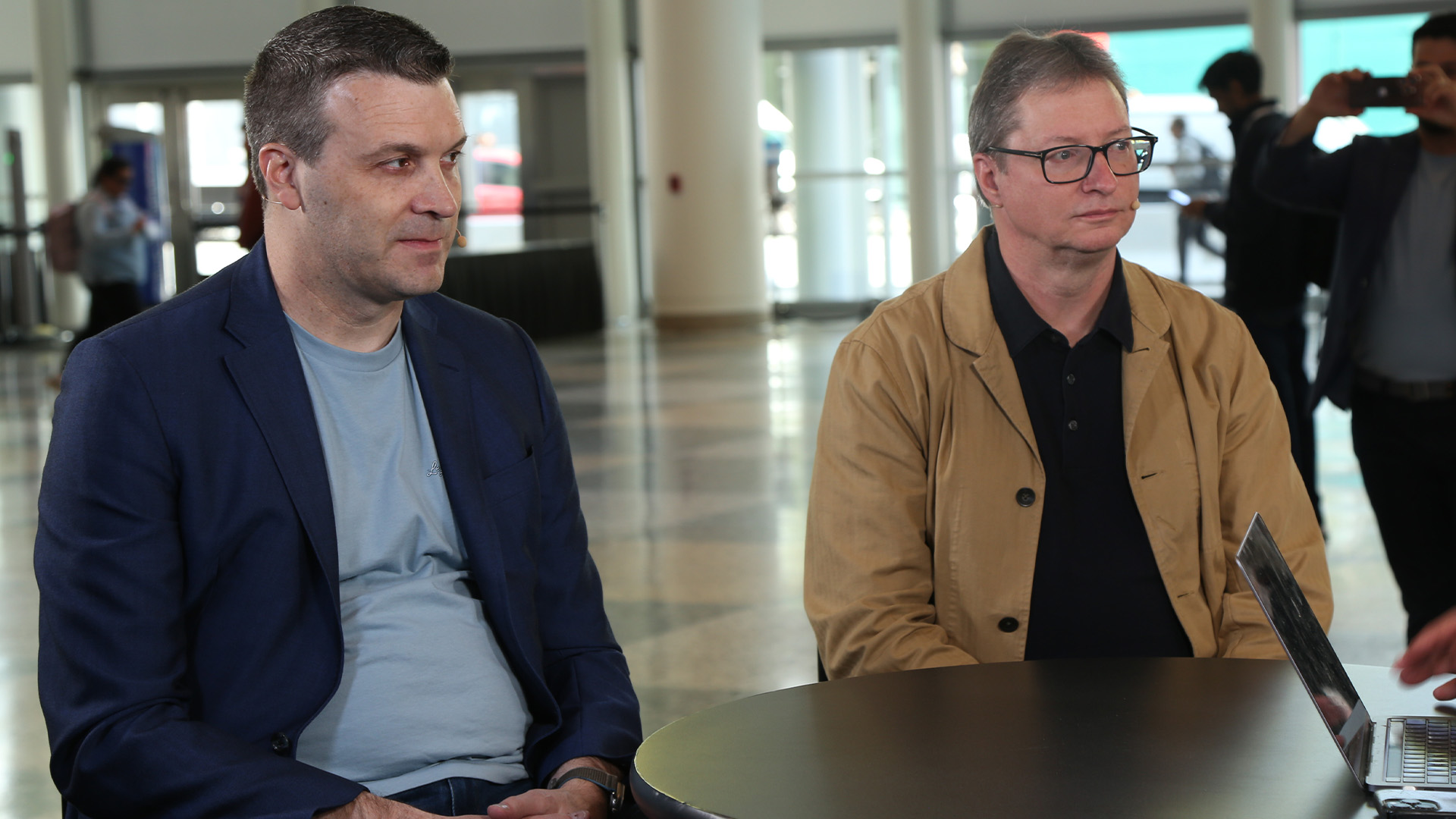As the world grows more dependent on digital infrastructure, cybersecurity has moved from a feature to a foundational element. As such, it must be embedded at every level of the technology stack — from hardware to software, networking and user experiences. The Google Cloud and Broadcom Inc. collaboration succinctly embodies that alliance.
Google Cloud’s Robert Sadowski and Broadcom’s Jason Rolleston talk with theCUBE about about the AI-driven future of network security.
“What we try to do with our platform is take the innovations that we’ve built for Google, where we support billions of users over products like Search and Android, and other things like that,” said Robert Sadowski (pictured, right), director of product marketing, security and trust at Google Cloud. “We take those capabilities that we’ve built, the platform capabilities and security capabilities and offer them to enterprises and partners like Broadcom so they can build and innovate on top of that. And that’s what we did with this, what we call our Cloud WAN announcement.”
Sadowski and Jason Rolleston (pictured, left), general manager of the Enterprise Security Group at Broadcom, spoke with theCUBE’s John Furrier at the RSAC 2025 Conference, during an exclusive broadcast on theCUBE, News Media’s livestreaming studio. They discussed Google Cloud and Broadcom combining tight integration, AI and decades of software evolution to enable next-gen cybersecurity solutions for a hybrid, high-speed and high-risk world. (* Disclosure below.)
Google Cloud and Broadcom leverage AI for network security
More than just a networking product, Google Cloud WAN is a hardened, scalable and globally distributed backbone that enables Broadcom to deploy security service edge solutions at scale, ensuring low latency, high performance and consistent policy enforcement anywhere in the world, according to Rolleston. Broadcom has leveraged the solution to detect and nullify downstream threats that proliferate lower in the network distribution chain.
“Attacks are going further and further down the market, going after more people,” Rolleston said. “It’s threat actors of every ilk out there. That really means you have to be protected in all of your interactions and engagements. Web security is such a tremendous control point, and many of your users are flowing through this and having access to things. If you can really use that as a place to identify and locate and stop things, it does so much for you.”
AI is a practical tool redefining the business landscape. However, it possesses a dual nature: While it’s powering innovations such as predictive analytics and real-time threat detection, it also generates massive data volumes and opens new attack vectors, according to Rolleston and Sadowski.
“It’s not just that we’re building the same things we were building before,” Rolleston said. “Google continues to bring new things to the market, and AI is becoming a big part of the story. The capabilities we’re now able to start offering customers in terms of how that can help you with the products, help you do new types of detections, new types of capabilities — it’s really tremendous. And that’s what you get from tight collaboration.”
Google Cloud and Broadcom are collectively embedding AI natively into the security features in their products. This allows for automated detection, advanced web isolation, and adaptive policy enforcement without the performance drag.
Here’s the complete video interview, part of News’s and theCUBE’s coverage of the RSAC 2025 Conference event:
(* Disclosure: Google Cloud sponsored this segment of theCUBE. Neither Google Cloud nor other sponsors have editorial control over content on theCUBE or News.)
Photo: News
Your vote of support is important to us and it helps us keep the content FREE.
One click below supports our mission to provide free, deep, and relevant content.
Join our community on YouTube
Join the community that includes more than 15,000 #CubeAlumni experts, including Amazon.com CEO Andy Jassy, Dell Technologies founder and CEO Michael Dell, Intel CEO Pat Gelsinger, and many more luminaries and experts.
THANK YOU








